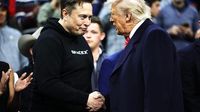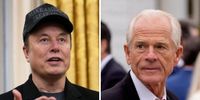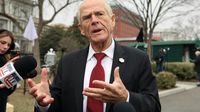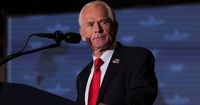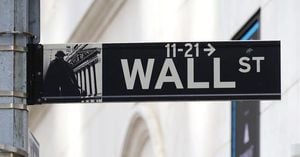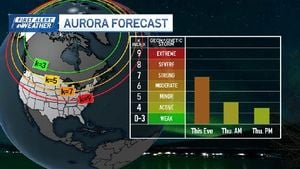In a surprising turn of events over the weekend, Tesla CEO Elon Musk publicly criticized President Donald Trump’s tariff policies, igniting a feud with Trump’s top trade adviser, Peter Navarro. The exchange unfolded on social media and during interviews, revealing stark differences in their views on trade and manufacturing.
On April 5, 2025, Musk took to his platform, X (formerly Twitter), to express his discontent with Navarro’s economic philosophies. In response to a video of Navarro discussing the administration’s tariff rationale, Musk stated, “A PhD in Econ from Harvard is a bad thing, not a good thing. Results in the ego/brains>>1 problem.” This comment, which criticized Navarro’s academic background, set the tone for a heated exchange between the two influential figures.
Navarro, who holds a PhD in economics from Harvard, did not take Musk’s remarks lightly. On April 7, during an appearance on Fox News, he referred to Musk as a “car assembler” who is primarily concerned with keeping his manufacturing costs down. “When it comes to tariffs and trade, we all understand in the White House — and the American people understand — that Elon is a car manufacturer … he’s a car assembler,” Navarro remarked, pointing out that Tesla sources many of its parts from countries like Japan, China, Mexico, and Taiwan.
Navarro’s comments came in the wake of Trump’s recent announcement of sweeping tariffs that would impose a 20% general tariff on countries within the European Union. Musk had previously advocated for a “zero-tariff situation” between the U.S. and Europe, arguing that such a move would create a free trade zone beneficial for both regions. His remarks were made during a video appearance at a congress of Italy’s right-wing League Party, just days after Trump’s tariff announcement.
“We want to see complete freedom of trade between the United States and Europe,” Musk had stated, emphasizing his belief in the benefits of free trade. However, Navarro dismissed Musk’s call, suggesting that it was driven by self-interest rather than a genuine concern for the economy. “He’s simply protecting his own interests as any business person would do,” Navarro added, reinforcing the notion that Musk’s position was motivated by his role as a businessman rather than a broader economic perspective.
The tension between Musk and Navarro highlights a growing divide within Trump’s administration regarding trade policy. While Navarro has been a staunch advocate for tariffs, believing they will bolster American manufacturing, Musk’s perspective leans towards free trade, which he argues is essential for innovation and competitiveness.
As the feud escalated, it coincided with a significant downturn in the stock market. Following Trump’s tariff announcement, Tesla’s stock has plummeted nearly 20%, and the company has seen a staggering 52% decline since December 2024. The broader market has also reacted negatively, with the S&P 500 dipping into bear market territory, down over 20% from its all-time highs.
In a bid to bolster his position, Musk shared a video of renowned economist Milton Friedman discussing the importance of free trade, further emphasizing his disagreement with Navarro’s protectionist stance. This move was seen as a direct challenge to the administration’s current trade policies.
Despite the public spat, Navarro claimed that there was no significant rift between him and Musk, suggesting that personal comments made by Musk were “no big deal.” He expressed confidence that they would continue to work together, stating, “We’ll see each other at the White House on Monday.” However, the underlying tension remains palpable, as both men represent contrasting ideologies within the Trump administration.
Navarro’s position as a trade adviser has been shaped by his belief in reshoring American manufacturing, while Musk’s approach reflects a modern, globalized perspective that prioritizes efficiency and cost-effectiveness. This fundamental disagreement raises questions about the future direction of U.S. trade policy under Trump.
As the debate continues, it remains to be seen how this public feud will affect both Musk’s and Navarro’s roles within the administration. With Musk’s tenure as a special government employee expected to conclude soon, speculation surrounds whether he will remain a key advisor to Trump or step back from the political spotlight.
The ongoing conflict between Musk and Navarro is emblematic of the broader struggles within the Trump administration as it navigates the complexities of trade relationships in a rapidly changing global economy. With mounting pressure from both sides, the outcomes of these discussions could have lasting implications for U.S. trade policy and the future of American manufacturing.
In the wake of these developments, investors and analysts are closely monitoring the situation, as the impacts of tariffs and trade policies ripple through the economy. As Musk and Navarro continue to spar over their differing views, the stakes remain high for both the tech industry and the broader economic landscape.
